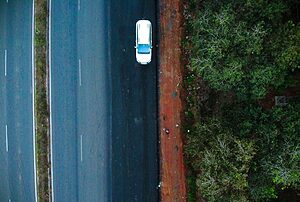In brief
- There are fierce debates overseas on excess deaths, which are occurring in many countries, but mum’s the word in New Zealand.
- Many countries with high excess deaths also had high rates of both covid and the vaccine.
- New Zealand is different than much of the world as it was largely vaccinated before Covid took hold.
The societal death rate is usually very predictable
The death rate is a statistic that, historically, has been rather predictable. If the numbers go up dramatically, shouldn’t there be a quick and thorough response to see if a cause can be identified and lives saved? The Government has the best data, so surely they should take the lead.
The debate is raging worldwide, with much on the line
There are fierce debates overseas on the topic, including the potential causes. Many credible experts are claiming the COVID vaccines are the problem. The counter argument is the deaths are somehow related to the coronavirus or the disruption to society from the lockdowns. In neither case is the evidence as clear as one would like. Nonetheless, many countries are no longer endorsing or are even greatly restricting the vaccines. For instance, the UK, Finland, Sweden, Denmark and the US state of Florida are amongst many governments that have limited which vaccines are administered and to whom they are given.
This is confirmation the “safe and effective” equation has changed according to these jurisdictions.
Why is the silence deafening?
Note there are many on each side of the argument who have staked much on their being right. This includes media, politicians, drug companies, safety advocates, medical boards, organisations that enforced mandates, and individual doctors. Therefore, it is not just a dispassionate search for the truth going on.
Yet in New Zealand the mainstream media has been very silent on the whole issue. We know of only one published article and they did not delve into the potential causes. More concerning, the government hasn’t made any official comment.
At this point there are countless experts on both sides with different opinions about the cause of excess deaths. Is it possible for even very well informed readers to confidently choose between experts? Note much of the argument around the world divides on political lines.
Also in the plot is evidence that media worked with governments to control the narrative, so the public did not have both sides of the story when making a decision. A prominent antitrust lawsuit has been launched in Texas against what was called the Trusted News Initiative (TNI), which are a number of large media organisations partnered with Big Tech to “tackle harmful misinformation” and “alert each other to disinformation”. The basis of the suit is that the defendants illegally colluded to “censor and boycott other online news publishers” in regards to COVID related information. The named defendants are The Washington Post, the BBC, the Associated Press and Reuters. This clamp down of information in the USA of course affects the information that goes farther downstream to places like NZ.
What now?
Will OIA requests be required to pry this data from the government? During a health emergency access to data is essential, so where is it? And will it be at issue in the NZ Inquiry on Covid?
Still, we see no attempt – at least yet publicly announced – to investigate this link. The safe and effective narrative from the government is still in play and yet another round of boosters is being planned for April, 2023.
The worldwide understanding of the excess deaths will continue to advance despite our government’s inaction as enquiries overseas are still progressing.



















